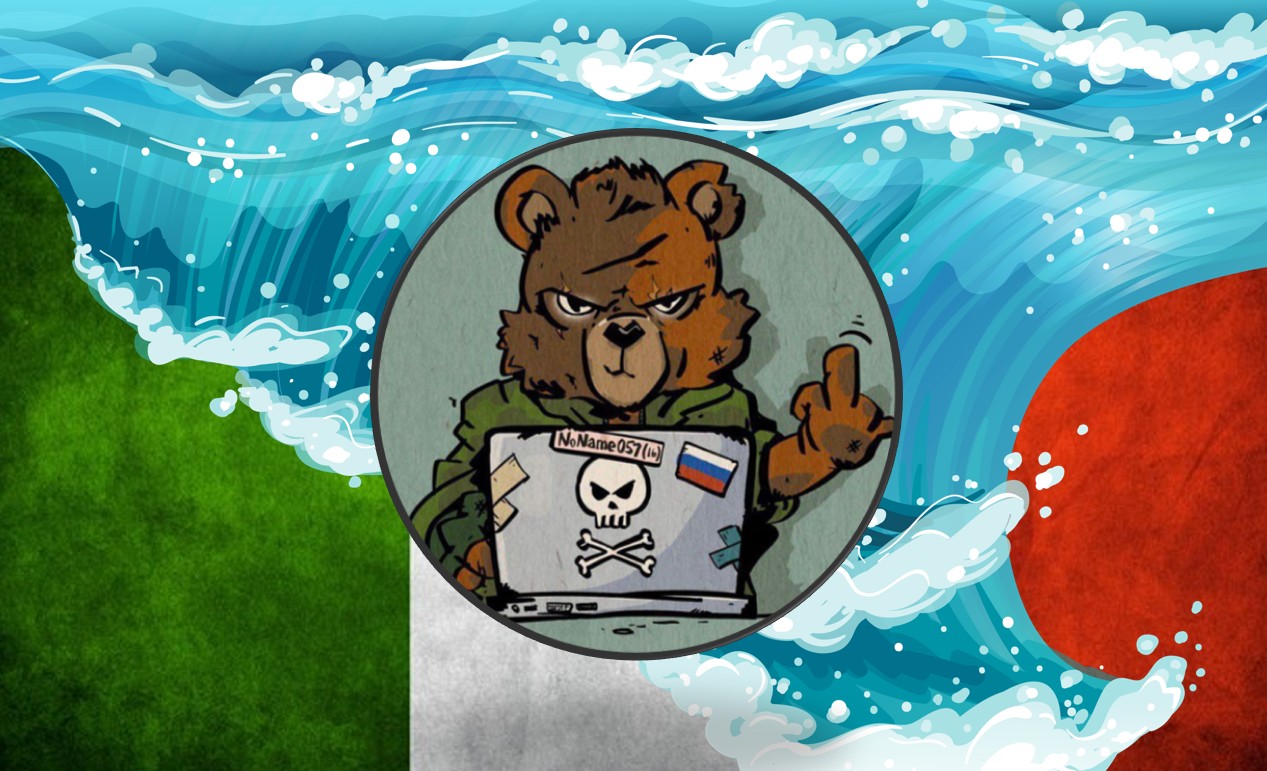
Gli hacker di NoName057(16), da qualche giorno hanno riavviato le loro attività ostili contro diversi obiettivi italiani, attraverso attacchi di Distributed Denial-of-Service (DDoS).
Sulla base di quanto osservato, le infrastrutture italiane hanno rafforzato la loro struttura e il periodo di interruzione del servizio è in forte diminuzione rispetto a 2 anni fa, fino quasi ad azzerarsi, grazie all’attuazione di misure contro gli attacchi DDoS e alla crescente consapevolezza che tali attacchi hanno comportato inevitabilmente.
Di seguito gli obiettivi rivendicati nella giornata di oggi dal gruppo di hacktivisti:

NoName057(16) è un gruppo di hacker che si è dichiarato a marzo del 2022 a supporto della Federazione Russa. Hanno rivendicato la responsabilità di attacchi informatici a paesi come l’Ucraina, gli Stati Uniti e altri vari paesi europei. Questi attacchi vengono in genere eseguiti su agenzie governative, media e siti Web di società private.

Un attacco DDoS (Distributed Denial of Service) è un tipo di attacco informatico in cui vengono inviate una grande quantità di richieste a un server o a un sito web da molte macchine diverse contemporaneamente, al fine di sovraccaricare le risorse del server e renderlo inaccessibile ai suoi utenti legittimi.
Queste richieste possono essere inviate da un grande numero di dispositivi infetti da malware e controllati da un’organizzazione criminale, da una rete di computer compromessi chiamata botnet, o da altre fonti di traffico non legittime. L’obiettivo di un attacco DDoS è spesso quello di interrompere le attività online di un’organizzazione o di un’azienda, o di costringerla a pagare un riscatto per ripristinare l’accesso ai propri servizi online.
Gli attacchi DDoS possono causare danni significativi alle attività online di un’organizzazione, inclusi tempi di inattività prolungati, perdita di dati e danni reputazionali. Per proteggersi da questi attacchi, le organizzazioni possono adottare misure di sicurezza come la limitazione del traffico di rete proveniente da fonti sospette, l’utilizzo di servizi di protezione contro gli attacchi DDoS o la progettazione di sistemi resistenti agli attacchi DDoS.
Occorre precisare che gli attacchi di tipo DDoS, seppur provocano un disservizio temporaneo ai sistemi, non hanno impatti sulla Riservatezza e Integrità dei dati, ma solo sulla loro disponibilità. pertanto una volta concluso l’attacco DDoS, il sito riprende a funzionare esattamente come prima.
L’hacktivismo cibernetico è un movimento che si serve delle tecniche di hacking informatico per promuovere un messaggio politico o sociale. Gli hacktivisti usano le loro abilità informatiche per svolgere azioni online come l’accesso non autorizzato a siti web o a reti informatiche, la diffusione di informazioni riservate o il blocco dei servizi online di una determinata organizzazione.
L’obiettivo dell’hacktivismo cibernetico è di sensibilizzare l’opinione pubblica su questioni importanti come la libertà di espressione, la privacy, la libertà di accesso all’informazione o la lotta contro la censura online. Gli hacktivisti possono appartenere a gruppi organizzati o agire individualmente, ma in entrambi i casi utilizzano le loro competenze informatiche per creare un impatto sociale e politico.
È importante sottolineare che l’hacktivismo cibernetico non deve essere confuso con il cybercrime, ovvero la pratica di utilizzare le tecniche di hacking per scopi illeciti come il furto di dati personali o finanziari. Mentre il cybercrime è illegale, l’hacktivismo cibernetico può essere considerato legittimo se mira a portare all’attenzione pubblica questioni importanti e a favorire il dibattito democratico. Tuttavia, le azioni degli hacktivisti possono avere conseguenze legali e gli hacktivisti possono essere perseguiti per le loro azioni.
NoName057(16) è un gruppo di hacker che si è dichiarato a marzo del 2022 a supporto della Federazione Russa. Hanno rivendicato la responsabilità di attacchi informatici a paesi come l’Ucraina, gli Stati Uniti e altri vari paesi europei. Questi attacchi vengono in genere eseguiti su agenzie governative, media e siti Web di società private
Le informazioni sugli attacchi effettuati da NoName057(16) sono pubblicate nell’omonimo canale di messaggistica di Telegram. Secondo i media ucraini, il gruppo è anche coinvolto nell’invio di lettere di minaccia ai giornalisti ucraini. Gli hacker hanno guadagnato la loro popolarità durante una serie di massicci attacchi DDOS sui siti web lituani.
Le tecniche di attacco DDoS utilizzate dal gruppo sono miste, prediligendo la “Slow http attack”.
Ti è piaciuto questo articolo? Ne stiamo discutendo nella nostra Community su LinkedIn, Facebook e Instagram. Seguici anche su Google News, per ricevere aggiornamenti quotidiani sulla sicurezza informatica o Scrivici se desideri segnalarci notizie, approfondimenti o contributi da pubblicare.

 Cybercrime
CybercrimeLe autorità tedesche hanno recentemente lanciato un avviso riguardante una sofisticata campagna di phishing che prende di mira gli utenti di Signal in Germania e nel resto d’Europa. L’attacco si concentra su profili specifici, tra…
 Innovazione
InnovazioneL’evoluzione dell’Intelligenza Artificiale ha superato una nuova, inquietante frontiera. Se fino a ieri parlavamo di algoritmi confinati dietro uno schermo, oggi ci troviamo di fronte al concetto di “Meatspace Layer”: un’infrastruttura dove le macchine non…
 Cybercrime
CybercrimeNegli ultimi anni, la sicurezza delle reti ha affrontato minacce sempre più sofisticate, capaci di aggirare le difese tradizionali e di penetrare negli strati più profondi delle infrastrutture. Un’analisi recente ha portato alla luce uno…
 Vulnerabilità
VulnerabilitàNegli ultimi tempi, la piattaforma di automazione n8n sta affrontando una serie crescente di bug di sicurezza. n8n è una piattaforma di automazione che trasforma task complessi in operazioni semplici e veloci. Con pochi click…
 Innovazione
InnovazioneArticolo scritto con la collaborazione di Giovanni Pollola. Per anni, “IA a bordo dei satelliti” serviva soprattutto a “ripulire” i dati: meno rumore nelle immagini e nei dati acquisiti attraverso i vari payload multisensoriali, meno…